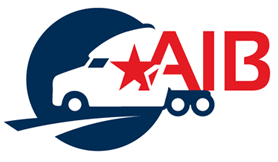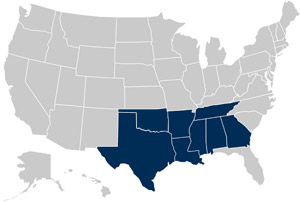31 Truck Insurance Terms to Know
Consider this your very own personal trucking insurance dictionary. These are truck insurance terms you should know to find the best policy for you.
1. Bobtail Insurance
If you plan to use your truck for business and personal reasons, you need bobtail insurance.
Bobtail insurance covers driving without a trailer or cargo attached to your truck. It will typically go into effect when you are off-duty or driving your truck for personal reasons. If an accident, injury, or property damage occurs during non-business trips, bobtail insurance has you covered.
People commonly refer to Bobtail insurance as non-trucking liability insurance.
2. Carrier
A carrier is a business or individual that engages in the commercial transport of goods. They are directly responsible for the safe and efficient transport of cargo. To operate, carriers must follow trucking regulations and maintain all required insurance and licensing.
3. Certificate of Insurance
A certificate of insurance is a document that provides proof of insurance coverage. It contains details on the insurance policy, coverage limits, and effective dates.
4. Collision Coverage Insurance
Collision insurance covers damage to a truck or fleet after an accident with another vehicle or object. It helps you pay for any repairs and replacements required after an incident – up to the policy’s limits – regardless of who is at fault.
5. Commercial Auto Liability
Commercial auto liability is a type of insurance that protects businesses or individuals who own vehicles for commercial use.
If your commercial vehicle is involved in an accident, this coverage is crucial in reducing your financial losses. Commercial auto liability covers liability claims, including injuries or damages, as well as legal defense costs.
6. Deductible
A deductible is the amount of money you are responsible for paying before your insurance company covers the remaining costs. Your insurance policy will determine and provide this amount up front.
7. Endorsement
An endorsement is any modification or addition made to an insurance policy that changes its terms or coverage. It can either expand or restrict coverage based on the need of the insured.
8. Environmental Liability Insurance
Environmental liability insurance covers claims for pollution or environmental damage caused by a trucking company. This includes events like fuel spills or hazardous material leaks.
9. Federal Motor Carrier Safety Administration (FMCSA)
The Federal Motor Carrier Safety Administration (FMCSA) governs the safety of commercial motor vehicles and the trucking industry as a whole. Its job is to prevent commercial vehicle fatalities, injuries, and accidents through safety awareness, regulations, and programs. The FMCSA, under the United States Department of Transportation (DOT), manages interstate travel for commercial trucks, buses, motor coaches, and carriers in the US.
10. Garage Keeper’s Liability Insurance
Garage keeper’s liability insurance protects businesses that engage in the care, custody, or control of vehicles. Examples of such businesses include auto repair shops and parking facilities. This insurance pays for any damage or loss when a vehicle is in the business’s care or custody.
11. General Liability Insurance
General liability insurance provides protection to businesses in the event of injury or damage caused by their operations, products, or premises. It is a crucial form of insurance for many businesses, protecting them from financial losses resulting from legal claims.
12. Gross Vehicle Weight (GVW)
Gross vehicle weight (GVW) is the maximum allowable weight of a vehicle as determined by its manufacturer. It includes the weight of the vehicle and its passengers, cargo, fuel, and any other equipment or accessories.
13. ICC/MC Authority
ICC/MC Authority is the regulatory or operating authority granted by the Federal Motor Carrier Safety Administration (FMCSA). Carriers must obtain and maintain this authority to stay compliant and legally engage in interstate commerce.
14. Interstate Trucking
Interstate trucking is the transport of goods by commercial trucks across state lines.
15. Intrastate Trucking
Intrastate trucking is the transportation of goods within a single state. It differs from interstate trucking in that the movement of cargo only occurs within the borders of a state.







